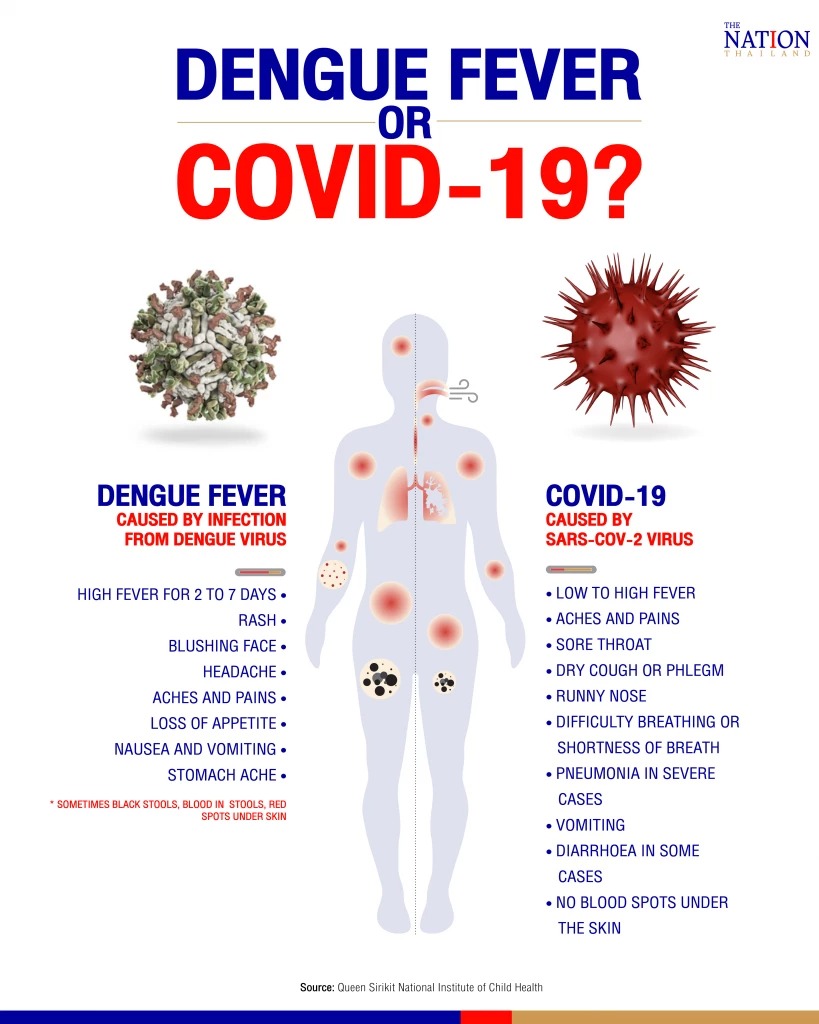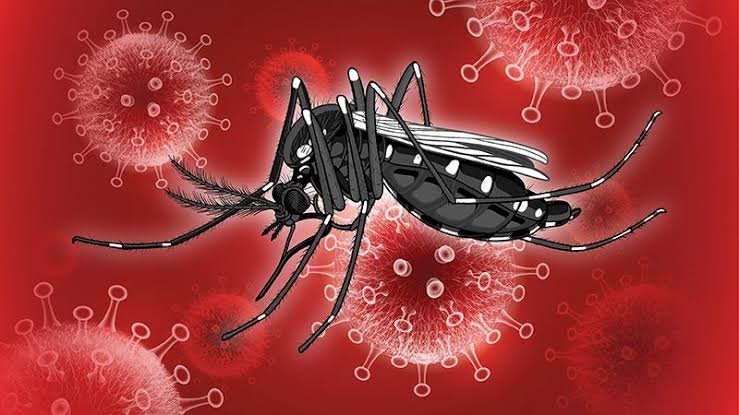Dengue is caused by one of any of four related viruses: Dengue virus 1, 2, 3, and 4. For this reason, a person can be infected with a dengue virus multiple times in their life.
Coronavirus disease 2019 or COVID-19 is a respiratory illness caused by a coronavirus called SARS-CoV-2. It is unclear if antibodies created from a COVID-19 infection can provide protection against getting infected again.
How does it spread?
Dengue viruses are spread to people through the bites of infected mosquitoes, mainly Aedes aegypti mosquitoes.
The virus that causes COVID-19 is thought to spread mainly through respiratory droplets produced when an infected person coughs, sneezes, or talks.
Signs and Symptoms:
The most common symptom of dengue is fever with any of the following:
• Aches and pains (eye pain, typically behind the eyes, muscle, joint, or bone pain)
• Nausea, vomiting
• Rash
Symptoms of dengue typically last 2–7 days.
People with COVID-19 have had a wide range of symptoms reported – ranging from mild symptoms to severe illness. Symptoms may appear 2-14 days after exposure to the virus. People with these symptoms may have COVID-19:
• Fever or chills
• Cough
• Shortness of breath or difficulty breathing
• Fatigue
• Muscle or body aches
• Headache
• New loss of taste or smell
• Sore throat
• Congestion or runny nose
• Nausea or vomiting
• Diarrhea

Warning Signs – Seek Medical Attention
Watch for warning signs of severe dengue, which generally begin within 24–48 hours after the fever have gone away.
If you develop any of the following symptoms, get medical attention immediately:
• Stomach pain, tenderness
• Vomiting (at least 3 times in 24 hours)
• Bleeding from the nose or gums
• Blood in vomit or stool
• Feeling tired, restless, or irritable
Look for emergency warning signs* for COVID-19. If someone is showing any of these signs, seek emergency medical care immediately
• Trouble breathing
• Persistent pain or pressure in the chest
• New confusion
• Inability to wake or stay awake
• Pale, gray, or blue-colored skin, lips, or nail beds, depending on skin tone

